
Single run. Switchbacks. L-shaped. Spiral. Curved. Triangular. Double helix. Slow stairs. Fast stairs. There are so many ways to describe the beauty and form of stairs. They’re architectural wonders celebrated in many publ…

Single run. Switchbacks. L-shaped. Spiral. Curved. Triangular. Double helix. Slow stairs. Fast stairs. There are so many ways to describe the beauty and form of stairs. They’re architectural wonders celebrated in many publ…
Many of us use stairways every day without putting much thought into their functionality or construction. However, stairs are an integral part of many homes and businesses, and at the very least, they serve as an alternative to …
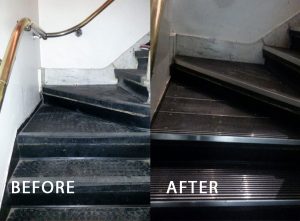 Stair treads are heavily trafficked areas in public and industrial settings. Depending on their construction material, they can accumulate dirt, grime, and other debris quite quickly. Without regular cleaning, dust and di…
Stair treads are heavily trafficked areas in public and industrial settings. Depending on their construction material, they can accumulate dirt, grime, and other debris quite quickly. Without regular cleaning, dust and di…
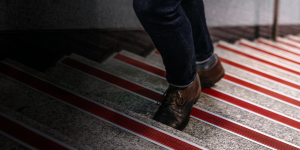 While people like to choose carpet runners for their looks, they can have strict disadvantages over using more durable aluminum stair treads. Here’s what you need to know carpet runners:
While people like to choose carpet runners for their looks, they can have strict disadvantages over using more durable aluminum stair treads. Here’s what you need to know carpet runners:
Like aluminum stair treads, carpet run…
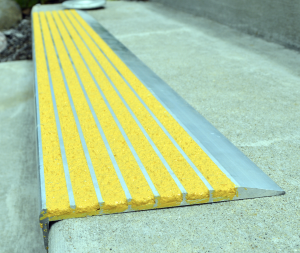 It’s important to know how to close open stair treads because leaving them as-is can be the source of many potentially serious accidents.
It’s important to know how to close open stair treads because leaving them as-is can be the source of many potentially serious accidents.
Here’s how you can close open stair treads at residential or in a business setting:
 When it comes to picking the best finish for stair treads, there are three important factors that come into play—cost, durability, and aesthetic.
When it comes to picking the best finish for stair treads, there are three important factors that come into play—cost, durability, and aesthetic.
People often ask about common choices like vinyl, adhesive, hardwood, plastic…
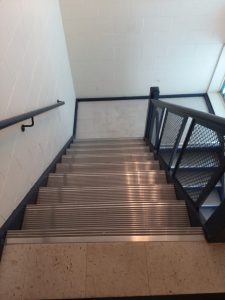
When it comes to aluminum vs. adhesive stair treads, the bottom line comes down to whether you’re willing to put up with a sticky situation if your stair treads fail prematurely.
People like adhesive stair treads because …
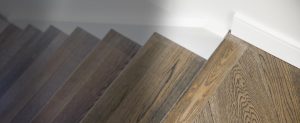
When it comes to aluminum vs. hardwood stair treads, the question of affordability has recently changed with the growing cost of lumbar in the United states.
We know hardwood stair treads are popular due to their looks. But not o…
The difference between aluminum vs. vinyl stair treads comes down to whether you’re looking for a long-term or short-term solution. At Amstep Products, we make it easy to find the right stair treads material for your needs.
Vin…